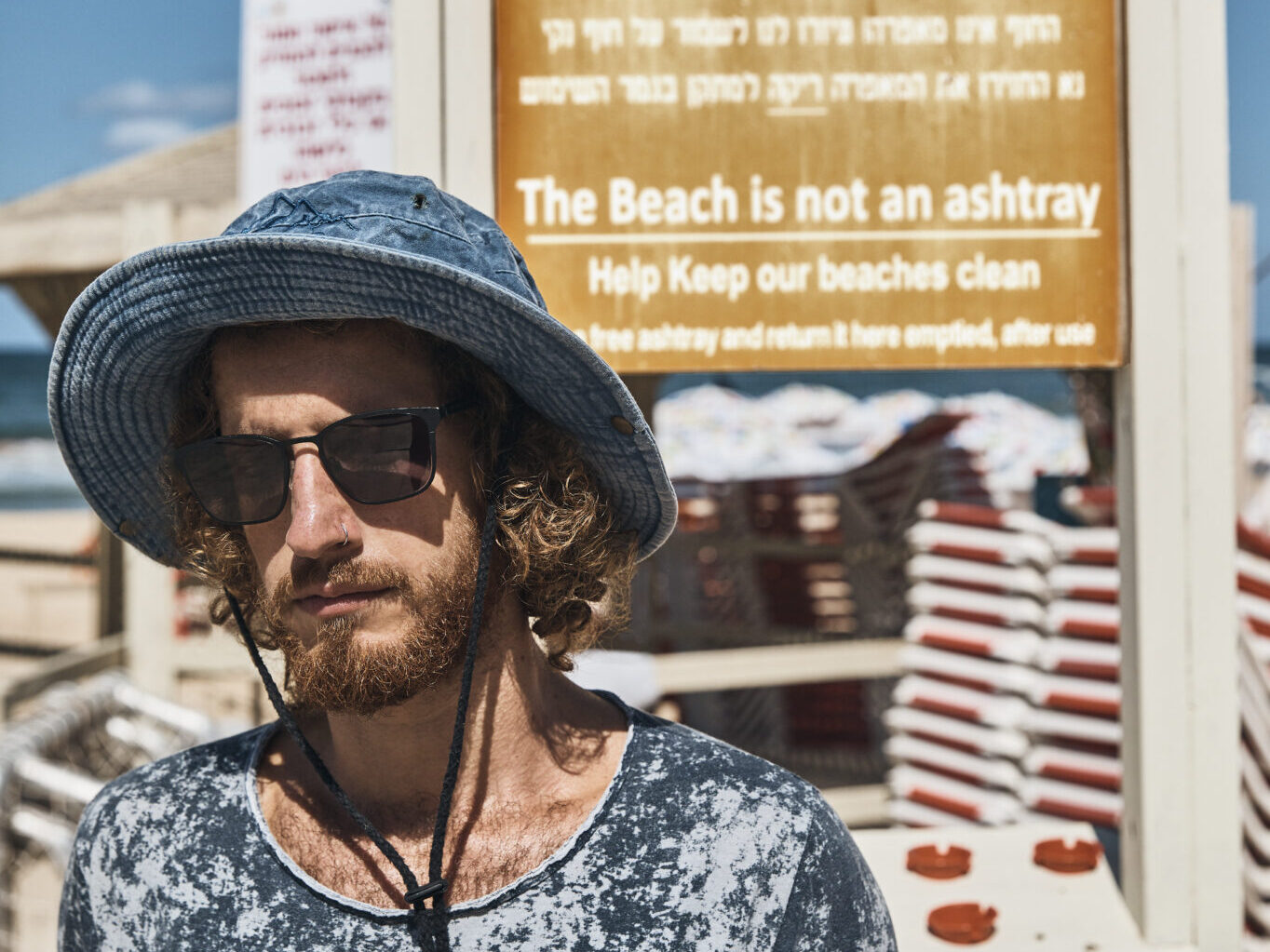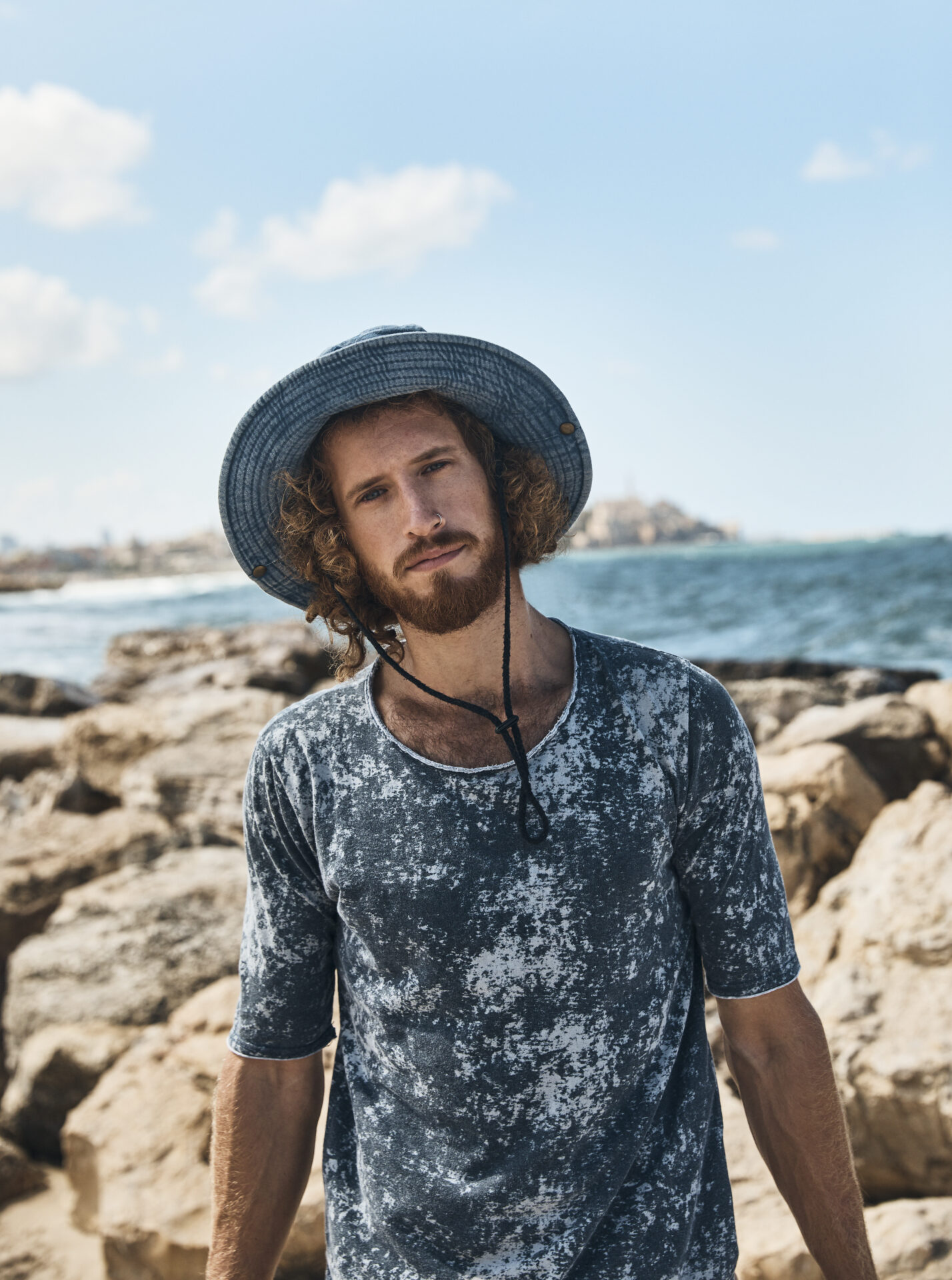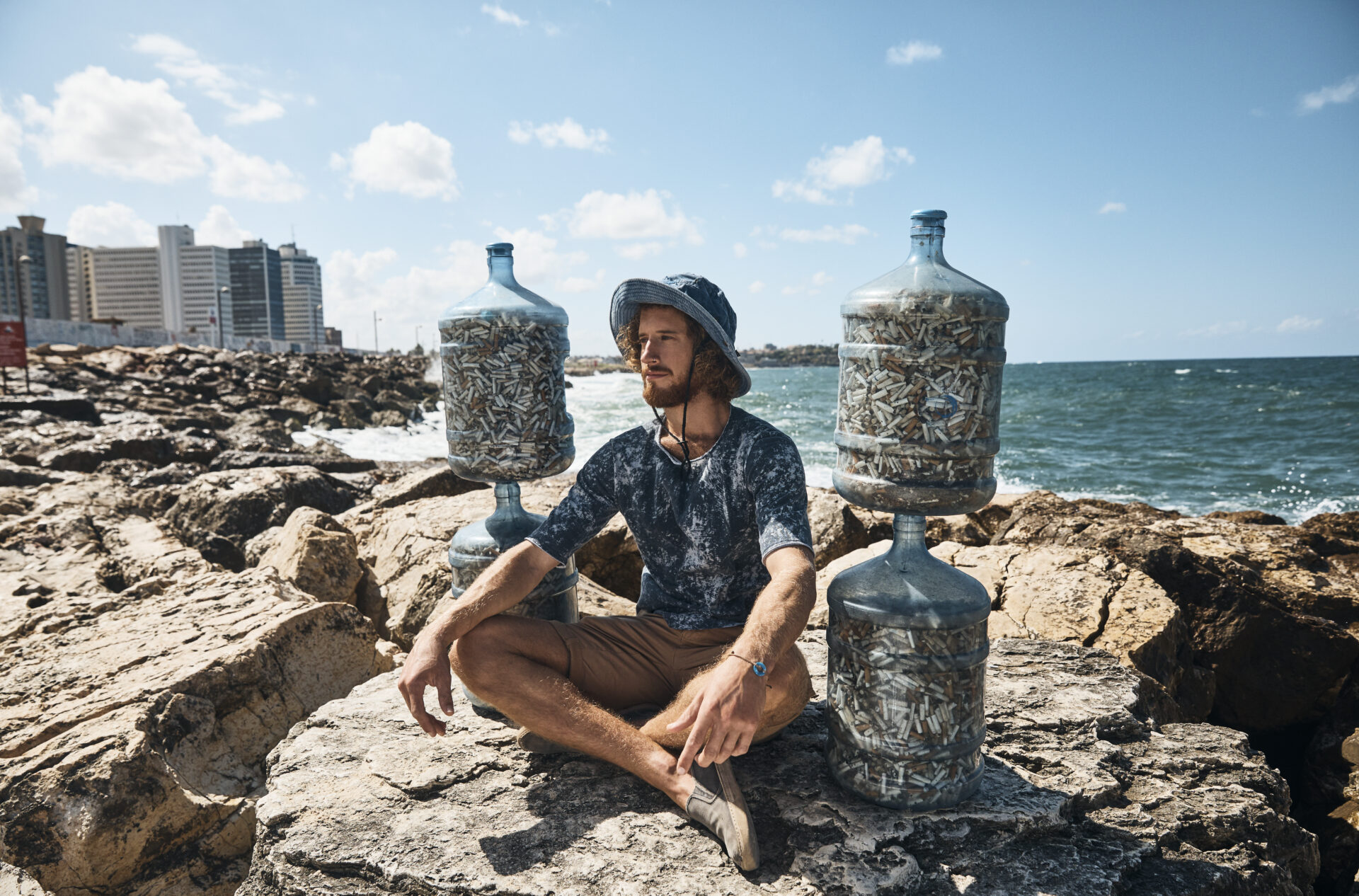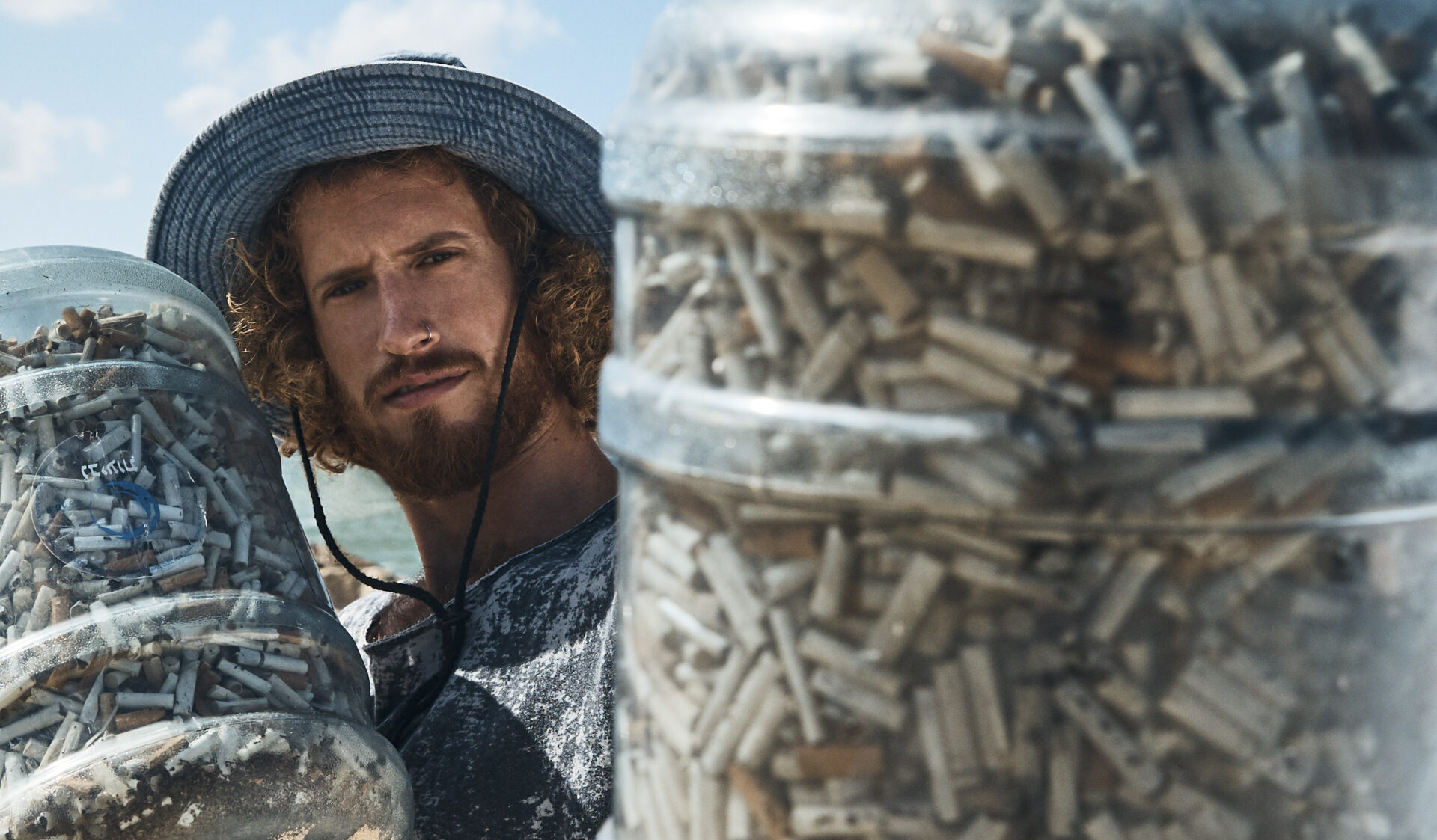Three years ago, when Julian Melcer was celebrating his birthday he didn’t want to throw a party on the beach like everyone else. Instead, the environmentalist had an idea: Celebrate by cleaning the beach – ridding the sand of the thousands of cigarette butts – with his friends.
Melcer grew up in Israel, but moved to Boulder, CO when he was 12. Six years later, he found himself back in Israel. In Israel, cigarettes are still widely popular, unlike in America, with 20% of adult Israelis smoking cigarettes as of 2020.
When Melcer came up with the idea to clean cigarette butts from Frishman Beach in Tel Aviv, he made “a super cute, low-quality video about my birthday.” Before he knew it, Melcer was going viral and Kan 11’s morning show, which is Israeli state-owned television, invited him to speak about his birthday and the clip had 2.7 million views on Facebook alone, the most of any sustainability video from Kan.
Now, Clean the Butts has become a leading nonprofit that is dedicated to cleaning cigarette butts in several areas. Melcer said, thus far, they’ve picked up over 2 million cigarette butts, and the organization has sold over 25,000 pocket ashtrays. They’ve also recycled thousands of pounds of cigarette butts, which have been created into art or turned into recycled plastic.

From harm reduction to art
Of course, every great idea has pushback. For Melcer, the challenge is breaking the stigma of being in the cigarette space and handing out pocket ashtrays, which some may think supports smoking.
“Even though we are on the other side of smoking, people view this as a taboo,” Melcer said. “We need to have a real conversation. People smoke anyways. We need to explain to people that if we are not there, people will still be smoking and they will litter more. If we are there, we are raising awareness and getting people to think about how their smoking impacts them and everybody around them.”
The idea stemmed from Midburn Israel, a six-day event held in the Negev that’s aimed to promote community, art, self-expression, and self-reliance. Melcer saw a pocket ashtray for the first time and it led him to start thinking about cigarette butts. So when he came back from the festival and went to the beach, he realized just how bad the issue is. On his first try, he filled up a 1.5 liter bottle of cigarette butts in just 30 minutes. At one point, Melcer even built a large statue from cigarette butts, which actually won an art competition.
“If we are there, we are raising awareness and getting people to think about how their smoking impacts them and everybody around them.”
But Melcer’s journey goes back even further, back to when his mom convinced him to start eating vegan about nine years ago. He went down a rabbit hole, as he explained, trying to find out the ways his eating habits impact animals and the environment. From there, he created a healthy life, one full of sustainability.
“Health is related to environmental awareness,” Melcer explained. “Cigarettes are a perfect example of how an unhealthy habit is also bad for the environment.”
Clean the Butts has grown exponentially over the past few years, with multiple Israeli municipalities purchasing bundles of pocket ashtrays to help solve this major environmental issue. At times, they will head over to the beaches of different municipalities to actually hand out the pocket ashtrays. There are 20 teams from Haifa all the way down to Rishon LeTzion to raise awareness about keeping the beaches clean. While doing this, they’ve talked to about 200,000 beach-goers.
Outside of Israel, Melcer’s held events in Copenhagen, Berlin and Washington, D.C., where he organized Facebook events for cigarette cleanups. Now, he will be expanding Clean the Butts with a membership program, which will allow people to receive benefits from wellness businesses.
“More important than collecting cigarette butts is getting people to be healthier,” he said.




